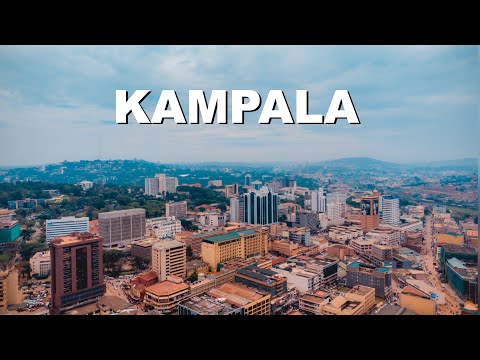
Kampala, the capital and largest city of Uganda, stands as a remarkable example of resilience and vibrant culture. Located near the shores of Lake Victoria, Africa’s largest lake, Kampala is not only the administrative center of Uganda but also its economic and cultural heartbeat. As we explore Kampala in 2023, we delve into its dynamic urban fabric, rich history, bustling markets, and youthful energy that make it a unique destination in East Africa.
### Historical Background
Kampala’s history is deeply entwined with the Buganda Kingdom, one of the oldest monarchies in Africa. The city’s name is derived from ‘Kasozi k’impala,’ meaning “the hill of antelopes,” reflecting its early landscape teeming with wildlife. Originally a hunting ground for the Kabaka (king) of Buganda, Kampala grew into a major city under British colonial rule when it became an administrative center in the late 19th century.
### Economic and Cultural Hub
Today, Kampala is characterized by rapid urban growth and development. It serves as Uganda’s economic powerhouse with diverse businesses ranging from small enterprises to large multinational corporations. The city hosts numerous industries including manufacturing, services, and IT sectors which have propelled its economy forward.
Culturally, Kampala is a melting pot with influences from various communities that call it home including Baganda, Basoga, Banyankole, among others. This diversity is showcased in its culinary offerings—ranging from local dishes like matoke (steamed plantains) to international cuisine—and vibrant music scene featuring traditional dance to contemporary Afrobeat.
### Tourism Highlights
In 2023, Kampala continues to charm visitors with its lively attractions:
– **Kasubi Tombs**: A UNESCO World Heritage Site where four kabakas of Buganda are buried; this site exemplifies traditional Ganda architecture.
– **Uganda Museum**: It offers an insightful look into Ugandan cultural heritage through extensive ethnographic collections.
– **Ndere Centre**: Here visitors can experience a variety of traditional performances that celebrate Uganda’s cultural diversity.
– **Craft markets**: Places like Owino Market provide colorful scenes brimming with crafts and local products perfect for souvenirs.
### Green Spaces
Despite urbanization pressures, Kampala retains several green spaces where residents and visitors can enjoy nature:
– **Botanical Gardens Entebbe**: Situated close by in Entebbe town; these historic gardens offer a tranquil escape with lush plant life and bird watching opportunities.
– **Lubiri Palace Grounds**: Although primarily a historical site—the official residence of the King of Buganda—the palace grounds offer peaceful walks surrounded by well-maintained gardens.
### Challenges and Future Prospects
Like many growing cities globally, Kampala faces challenges such as traffic congestion and informal settlements that lack essential services. However, there are concerted efforts towards sustainable urban planning including infrastructure improvements like better road networks and investment in public transport systems.
Furthermore, initiatives to boost tourism are underway which include enhancing safety for tourists and promoting eco-friendly practices thus safeguarding its natural resources for future generations.
### Conclusion
In conclusion,Kampala’s journey into 2023 reveals a city that thrives amidst challenges—a place where tradition meets modernity. Whether exploring through its historical landmarks or engaging with locals at vibrant marketplaces; visiting Kampala offers an enriching experience rooted in warmth and authenticity typical of Ugandan hospitality. As this dynamic city continues to evolve so does its capacity to surprise those who venture within its borders making it an intriguing destination for adventurers looking to explore East Africa’s hidden gems.
